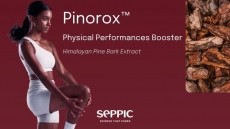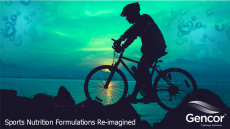New guide offers transparency on plant-based sports nutrition

The ‘Vegan and vegetarian sports nutrition guide’ is published in partnership with the European Specialist Sports Nutrition Alliance (ESSNA) and provides a transparent explanation of terminology and the nutritional profile of products on the market.
Waterfall explains the significance of different plant-based options (flexitarian, pescatarian, etc) and outlines the virtues of each one. He also addresses concerns about insufficient essential nutrients in some sports nutrition products.
Plant-based trends
According to the author, approximately 31% of Europeans claim they follow a meat-free diet, which has sparked a sharp rise in new product development of plant-based sports nutrition over the last four years.
This activity reflects mainstream consumer dietary trends and endorsements by a growing number of world-class athletes, like Serena Williams, Lionel Messi and Lewis Hamilton.
“14% of UK sports nutrition products launched in 2019 featured a vegan or vegetarian claim, up from 9% in 2014. This increase is typical of those across Europe. 21% of Europeans have said that they have bought plant-based sports nutrition products.”
He adds that plant-based diets have significant potential to improve health, exercise performance and recovery. “Sports nutrition products can play a useful role in supporting anyone’s active lifestyle.”
Some sports drinks contain electrolytes that replenish essential minerals and alleviate dehydration. The addition of caffeine aids concentration and alertness, he explains.
Creatine optimises high-intensity, short-duration exercise and iron ensures delivery of oxygen to key exercise tissues, normal functioning of the immune systems, and reduces tiredness and fatigue.
Nutritional value
Waterfall acknowledges that deficiencies can occur with plant-based products and suggests alternative vegetarian sources or supplementation where necessary, such as vitamin B12 (essential for health and performance), and vitamin D, important for health bones and immune systems.
“Plants don’t produce B12 in reliable quantities, it’s important to source it from fortified foods and supplements,” he says.
“In the UK it’s recommended that everyone, regardless of diet, considers taking a vitamin D supplement. It plays numerous critical roles in the body.”
He advises additional iodine intake to counteract the omission of cow’s milk (often a main source), obtained from fortified plant milks or iodised salt, and protein supplements for consumers with high protein goals.
“Products made with multiple sources of plant protein will contain all the essential amino acids. In other cases, fortification with essential amino acids with adequate purity may be used to ensure a complete amino acid profile.”
Waterfall maintains that a well-planned vegan or vegetarian diet can provide everything the body needs to thrive. He adds, “Leading health authorities, such as the World Health Organisation and the British Dietetic Association, acknowledge that plant-based diets can support healthy living in people of all ages, include athletes.”















